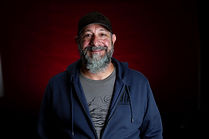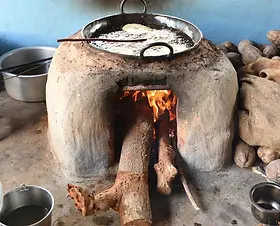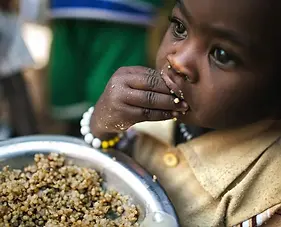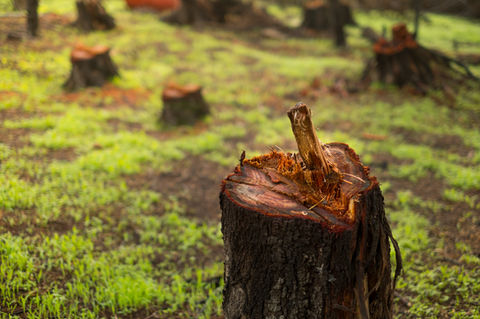
ABOUT
Persons Helping People Past and Present
PURPOSE & GOALS
Thirty-four years ago, Mike and Martha Port were inspired by a vision that led them on a mission to address a significant issue. This inspiration stemmed from a local newspaper article highlighting that over 3 billion people lack reliable methods to heat water for drinking or cooking, and that an affordable solar oven could provide a solution. Many people in our global population face severe challenges due to deforestation in their countries, depriving them of essential resources.
The Ports dedicated themselves to researching and experimenting with ways to create an inexpensive yet effective solar oven. In 1990, during a mission trip to Haiti, they successfully cooked meals using ovens made from cardboard boxes, aluminum foil, and glass. Over the years, they refined the design for greater durability, eventually constructing plywood-framed solar ovens in Jamaica. With the knowledge and experience gained in those early years, they understood that the oven needed to be lightweight, durable, and cost-effective to produce.
In 1993, the Ports partnered with Persons Helping People, a Minneapolis-based 501(c)(3) non-profit organization, to raise funds and manufacture their envisioned solar oven. Over the past three decades, Mike and Martha have produced and distributed more than 25,000 ovens worldwide. A partial list of countries served—Algeria, Cambodia, Canada, Costa Rica, Democratic Republic of Congo, El Salvador, Ethiopia, Guatemala, Haiti, Italy, Jamaica, Kenya, Nicaragua, Puerto Rico, Rwanda, South Africa, Zambia, United Arab Emirates, and the USA—reflects the dedication and perseverance behind this mission.

Where We've Been

WHATS NEXT?
Today, Persons Helping People is bringing the Dual Sport Solar Oven(formerly known as the SOS and Solavore) back into production and expanding their initiatives. They will collaborate with various foundations and missionaries to identify assembly plant locations for distributing the ovens. Their aim is to develop several new versions of production jigs for assembly (which do not require electricity) and send them to these locations. By working with local communities, they can employ residents to train and assemble the oven parts, which will lower shipping costs and create jobs. Persons Helping People is excited to strengthen the team by adding new leadership and production support from Olaf Lee, who brings years of experience and is spearheading the creation of the new assembly jigs. While they are also pursuing other enhancements for the ovens, their main priority is to have them in stock and ready for shipment by early 2025.
MEET THE TEAM




THE IMPACT
Drinking Water
The Deforestation of Critical Habitats.
The Effects of Burning Wood, Coal, Oil or Other Combustibles
The United Nations Food and Agriculture Organization reports that each year up to one billion children suffer from diarrhea caused by drinking contaminated water. Of those children, 5 million die. Solar ovens can pasteurize water, giving more children a chance at life.
The forests of the world are disappearing, causing erosion, flooding, less oxygen, more CO2, and more droughts further reducing food supplies. Sunshine is nonpolluting and inexhaustible. Cooking with a solar oven means less deforestation, soil depletion, and pollution. This encourages more trees, and rain, better crops, and cleaner air. Dried animal dung gathered for fuel could be better used being put back into the soil for fertilizer.
Solar ovens reduce the amount of smoke inhaled by family members. This will mean less eye disease or blindness, and less lung disease. In addition, there will be fewer burns from children not falling into open fires. Fewer women will experience burns from their clothing catching on fire or small propane stoves exploding.



Nutritious Food
Food cooked in the Sport is actually more nutritious than food cooked by many other methods. Meats are cooked without adding any additional oil. Vegetables and fruits are cooked without adding water. With solar cooking the nutritional value stays right in the food. Because of the slow method of cooking, the food is more tender and therefore more easily chewed and digested by seniors and small children. In addition, foods do not burn or easily overcook and need not be stirred or watched. One can even bake bread in a solar oven.

Time Saver
In many parts of the world, the search and gathering of fuel for cooking takes up to 6-8 hours per day (daily or every other day). This time and energy could be better time spent with family members, improving health conditions, and increasing food supplies. A solar oven can be used year-round in the tropics and six to eight months of the year in many areas of the world. With reflectors and the Sport’s superior insulation, the Sport even performs well in below zero weather.

Budget Helper
Many families in developing countries face the challenge of both purchasing and gathering fuel. It's common for them to spend at least one US dollar daily on various fuel sources such as firewood, charcoal, propane, kerosene, or more costly electricity. The solar oven presents a valuable solution to combat the 13 to 18 million deaths caused by hunger and malnutrition each year globally. By minimizing food waste from burning or scorching and saving on fuel costs, families can better manage their budgets.
COMMUNITY EMPOWERMENT
GLOBAL INITIATIVES
Our solar oven projects aim to empower communities by providing them with the tools and knowledge to harness solar energy for cooking. Through partnerships and global initiatives, we strive to make solar cooking accessible and beneficial to communities in need.
SUPPORT OUR MISSION
GET INVOLVED
Join us in our mission to expand the reach of solar cooking and make a positive impact on communities worldwide. Your support enables us to implement more solar oven projects and create meaningful change in the lives of those who lack access to clean cooking solutions.
MAKE A DIFFERENCE
Your involvement can make a real difference in promoting sustainable living and addressing the challenges of cooking fuel scarcity. Together, we can work towards a more sustainable future and contribute to the well-being of individuals and families in sun rich but fuel poor regions.




